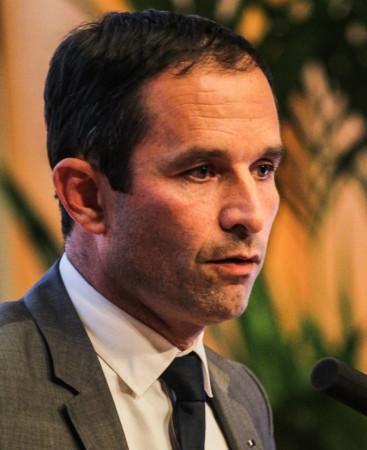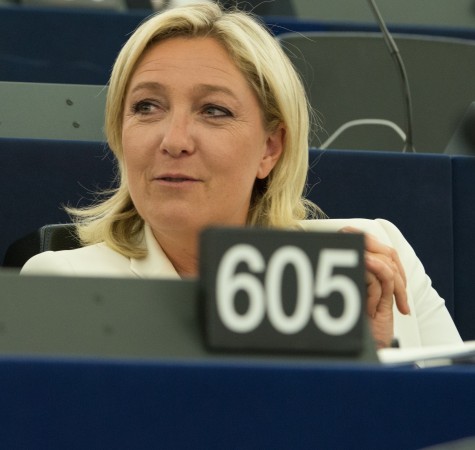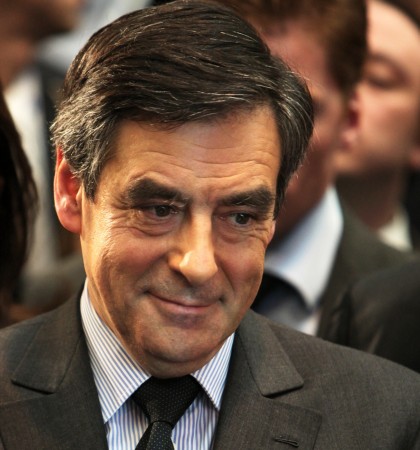France elects its new president in April, a decision which could affect the future course of the country’s co-operative sector.
There are more than 21,000 co-operatives across different sectors, which provide jobs for one million people and have a turnover of €300m.
The main candidates in the primary election are Benoît Hamon, representing the Socialist Party, François Fillon for the Republicans, Marine Le Pen for the Front National and Emmanuel Macron for En Marche!. But what is their record on co-operatives?
Benoît Hamon

Socialist candidate Benoît Hamon is a former member of the European Parliament (2004-2009) and minister for Social Economy (2012-2014). He was also minister of National Education for a brief period in 2014. While in charge of social economy, Mr Hamon presented a bill on the social and solidarity economy designed to help boost the sector. The legislation, passed by the National Assembly in July 2014, provides for the creation of transitional co-operative societies enabling employees to take over the enterprise under a co-operative structure.
Co-ops are included in Mr Hamon’s programme, which pledges to double the size of the social economy from 10% to 20% of the country’s GDP by 2025. And he promises to allocate more resources to the sector and promote it within academic and educational institutions. As well as proposing to limit the working week from 35 hours to 32 hours, Mr Hamon plans to introduce a Universal Revenue of €750 a month.
He promises to place a stronger emphasis on the social and solidarity economy within the government’s public e-procurement platform.
In terms of energy, Mr Hamon proposes creating local renewable energy co-ops, giving communities the chance to own 50% of more of the capital.
Emmanuel Macron

Running as an independent centrist, former economy minister Emmanuel Macron quit François Hollande’s government last year to launch his bid for presidency. He has set up his own political movement, En Marche! (On Our Way) and is running without the backing of one of the main parties.
Mr Macron is the architect of a law named after him, which was passed by government decree in 2015 to cut red tape. The legislation extended the number of Sundays and evening hours that retailers can open.
Mr Macron describes himself as neither left nor right, but a liberal who advocates for “collective solidarity”. The former investment banker has yet to launch a full electoral programme. He is not a member of any major political parties.
While minister of the economy, he attended the annual congress of the agricultural and retail co-ops, which he praised as institutions which have “a soul”.
Marine Le Pen

Marine Le Pen has been an MEP since 2004 and has been campaigning for a referendum on France’s exist from the European Union. Her programme consists of 144 commitments but makes no reference to co-operative businesses or the social and solidarity economy.
The National Front leader is in favour of supporting local agriculture and small businesses and favouring French products when it comes to public procurement, measures which could indirectly impact co-ops. She promises to lower tax for small and medium enterprises from 33% to 24% and facilitate better access to credit for them. Ms Le Pen wants to cut the retirement age to 60.
François Fillon

A former prime minister under President Nicolas Sarkozy (2007-2012), Mr Fillon promises to loosen business regulation, end the 35-hour working week and simplify employment law. He also wants to increase the retirement age from 62 to 65.
Mr Fillon is advocating for closer relations with Russia and aims to remove EU sanctions that currently prevent France from selling agricultural products to Russia, a decision affecting many agricultural co-ops in France. Exports to Russia fell by 23% in the agri sector. The Conservative candidate is keen to develop research on the agricultural models and give more freedom to farmers on the legal form of their enterprise.
Last October, national apex body Coop FR launched the Coop 2017 campaign to raise candidates’ awareness of the co-operative enterprise model and its contribution to economic development and social cohesion.
The campaign calls on the presidential candidates to institutionally recognise the sector, establish a fair competitive environment that takes into account the specificities of the co-operative model, and encourage the creation of co-ops.
Coop FR also wants the incoming administration to secure a fair access to financial services for small and medium enterprises, some of which are co-ops. The trade body would like to see the co-operative model taught in schools and universities.
The Federation of Co-operative and Associative Trade, which includes co-operative retailers, also has a wish list. Its 10 suggestions include enabling the transition to employee ownership in small and medium enterprises, alleviating employment social expenses, which are one third higher than the European average, and adopting different tax incentives to increase investment.